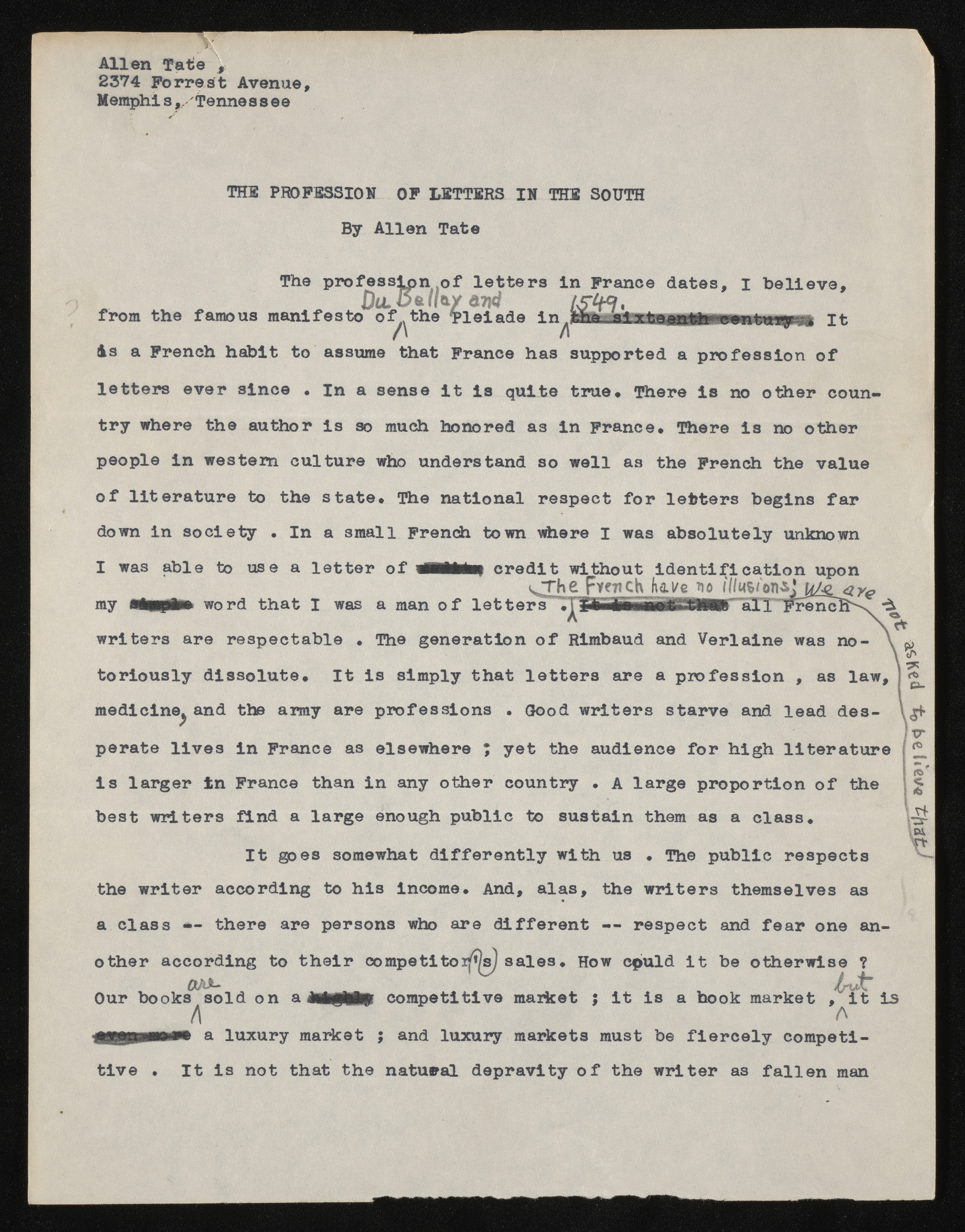
Manuscript of Allen Tate's "The Profession of Letters in the South," 1935.

This week’s newsletter highlights poet Allen Tate, National Medal for Literature winner and a premier southern poet of the twentieth century. In the spring of 1935—in a tenth-anniversary issue that highlighted southern writers—VQR published Tate’s “The Profession of Letters in the South,” an essay that reflected on the past, present, and future of southern literature, seeking to understand the reasons for what Tate saw as a weak tradition of literature compared to the industrialized north, and to the European cultures he viewed as most similar to the agrarian south. Tate was a founding member of the Southern Agrarians, a group concerned with defending rural agriculture, conservatism, and religiosity from what they deemed the negative, industrializing, urbanizing effects of “progress.”
Works like “The Profession of Letters in the South” are a part of VQR’s publishing history, and they represent a very real anxiety present in the south from Reconstruction through the first half of the twentieth century. These perspectives can provide a fruitful arena for investigation and dialogue; they are a window into the psyche of a creative class coming to grips with a society and culture built upon a phantasmagoria of white supremacy fabricated to uphold racial hierarchies. They should not, however, be taken out of the context in which they existed in 1935 or exist today, and this southern ideology cannot be thought of outside its relation to the oppressive racial hegemony fundamental to this era of the American South.
